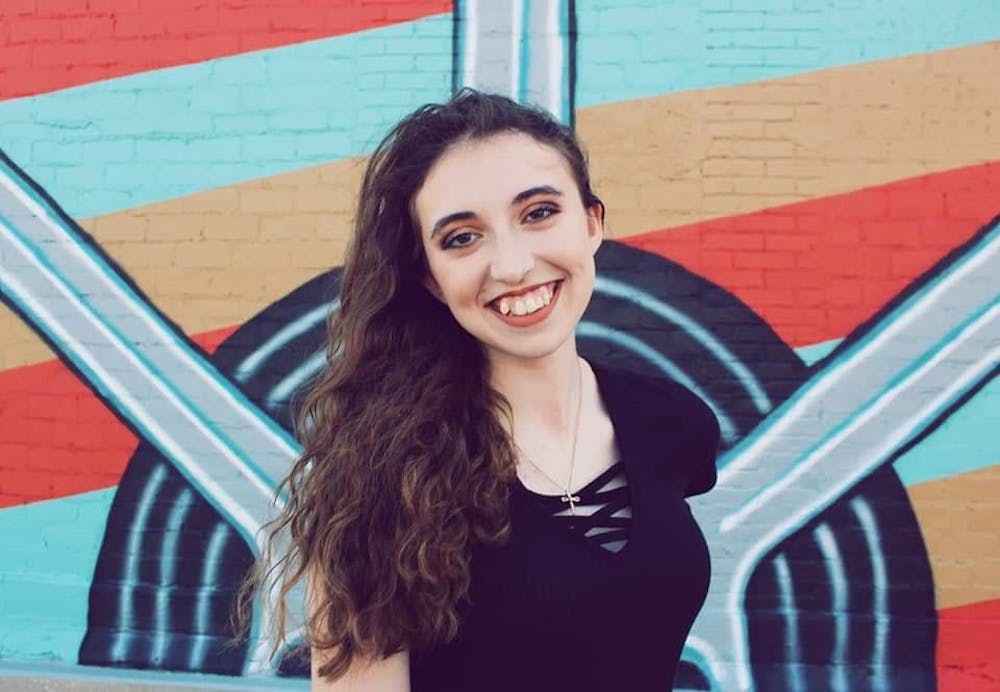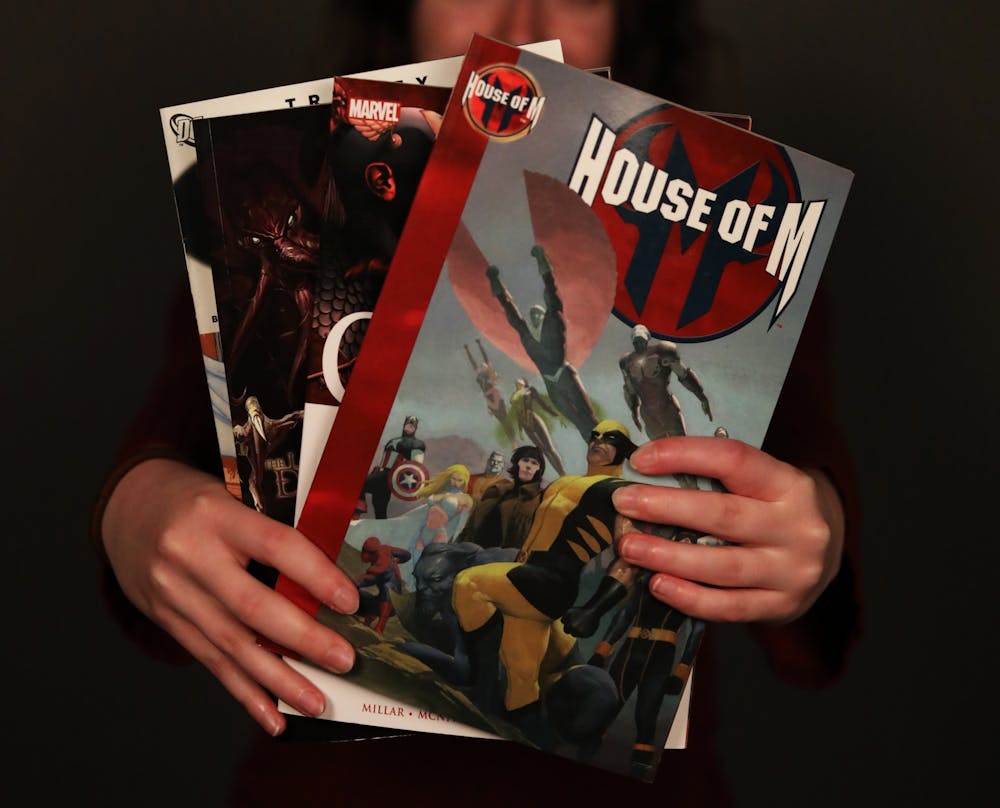
Emily Hunter is a sophomore journalism major and writes “Speak Out” for The Daily News. Her views do not necessarily reflect those of the newspaper.
My dad has always said, when I was born, he didn’t care if I was a boy or a girl. All he wished for was a healthy child with 10 fingers and 10 toes — and someone willing to geek out with him.
He called me his “geek in training.” My bedtime stories were from “Narnia,” and I was playing board games from the time I could roll a die. I’ll never forget wanting to name my first Dungeons & Dragons character Daffodil.
I attended my first gaming convention at 7 years old, the first time I cried at the TV was for the loss of Rose Tyler on “Doctor Who” and the first Halloween costume I chose for myself was Hermione Granger. Movie nights usually consisted of selections from the Star Wars and Marvel franchises.
Years later, I still have a love for all things “geeky.”
However, as I got older, saying I liked a movie, book or TV show wasn’t enough. I had to prove my love for them by answering specific trivia.
When I say I prefer movies over comics, I’m not a “true fan.”
When I say I also like to wear makeup and dresses, I’m faking my interests for attention.
When I say Loki is one of my favorite Marvel characters, it’s because I think he’s attractive, not because of his complex backstory and character arc.
While the root of this inequality is debated, one of the underlying issues we have to address is that, as a woman, it seems like most of the content surrounding nerd culture is written by men, for men.
For example, when Disney stores first started selling Avengers merchandise, there was a lack of Black Widow costumes and action figures. People took to Twitter to air out their concerns, pointing out Black Widow was missing from merchandise in the store. The male characters were all represented, but the only female character was left out.
From my perspective, it felt like Disney was only marketing to boys, who it believed would make the company the most money. At the time, Black Widow was the only female Avenger, and the lack of female representation seemed like a deliberate slap in the face. Women flocked to Twitter with the hashtag #wheresnatasha, like the @whereisnatasha Twitter account “dedicated to finding Black Widow in Marvel merchandise.”
In the creation of nerd culture content, many female characters are written in a sexualized and objectified manner with the intent of being created for male pleasure. In feminist theory, this is described as the “male gaze.” One of the easiest ways to notice the “male gaze” is through female costumes and character drawings.
Many fantasy video games have the option to play as a female character to appeal to a broader audience. For example, in games like “Mortal Combat” and “Street Fighter,” male and female character selections are far from equal. Most of the male characters are found in full battle armor for strength and protection whereas female characters can often be found in a chainmail bikini with her midriff and legs exposed.
Somehow, this “armor” is supposed to offer equal protection.
Comic books are especially bad at this. Female DC villains, such as Catwoman and Poison Ivy, are often drawn in poses centered on their chests or butts, no matter the outfits they’re depicted in. This is incredibly obvious when compared to male villains, like the Joker and the Riddler, who aren’t sexualized.
As a woman, this objectification is highly uncomfortable for me to see and a big reason why I haven’t read as many comic books as I would like. I remember flipping through a few “X-Men” comics when I was little and feeling sick to my stomach. I felt like I stumbled across something I wasn’t supposed to see. For days, I was scared I would get in trouble for trying to read my dad’s comics, and I didn’t touch another comic book for a long time afterward.
I would see boys my age reading comics and wonder why they didn’t have the same reaction. After researching this and writing this, I now feel it may be because some of them have been conditioned to believe this is normal. I believe comics have been unwittingly encouraging this treatment of women for years.
In trying to appeal to male readers, these comics are actually turning away their female fans.
Recently, the Marvel Cinematic Universe (MCU) has made attempts to rectify these mistakes. In Marvel Comics, Wanda Maximoff — the Scarlet Witch — has always been seen in a bright red, low-cut leotard with a cape, knee-high boots and a headpiece.
When Marvel added Wanda’s character to the MCU, it updated her costume. In “Captain America: Civil War,” Wanda — played by Elizabeth Olsen — wore tight black leather pants, a red corset and a fitted red overcoat. After production, Olsen revealed to the public that she was uncomfortable in her outfit. As one of two female Avengers at the time, she didn’t like how revealing her costume was compared to her male co-stars.
Marvel listened.
In the finale of “WandaVision,” Wanda gets a new costume: a full-length, red leather suit with a cape and her iconic headpiece from the comics. Olsen helped design it herself to ensure her comfortability while still staying true to her character’s style.
Many fans have been extremely pleased with her new look, myself included. Wanda looks the best she ever has, and I attribute a lot of that to Marvel listening to its actresses and fans.
While Marvel still has a long way to go when it comes to equality, this is a step in the right direction.
My dad always did his best to include female role models in my “training” by showing me books written by female authors and shows featuring strong female leads.
It’s important for girls to have positive female role models, especially in worlds seemingly dominated by men. These communities are growing rapidly in popularity, and women need to feel welcome.
Fans of these stereotypically “nerdy” movies, shows, books and games have been through their fair share of discrimination and bullying, no matter their gender. Many of them turn to these worlds as a safe space where they are free to be themselves. If these women are bullied in the “mainstream” world then shunned from the world they escape to, where are they left to turn?
Women in these communities aren’t going anywhere, and it’s time we are represented and treated with respect.
Contact Emily Hunter with comments at ekhunter@bsu.edu.





